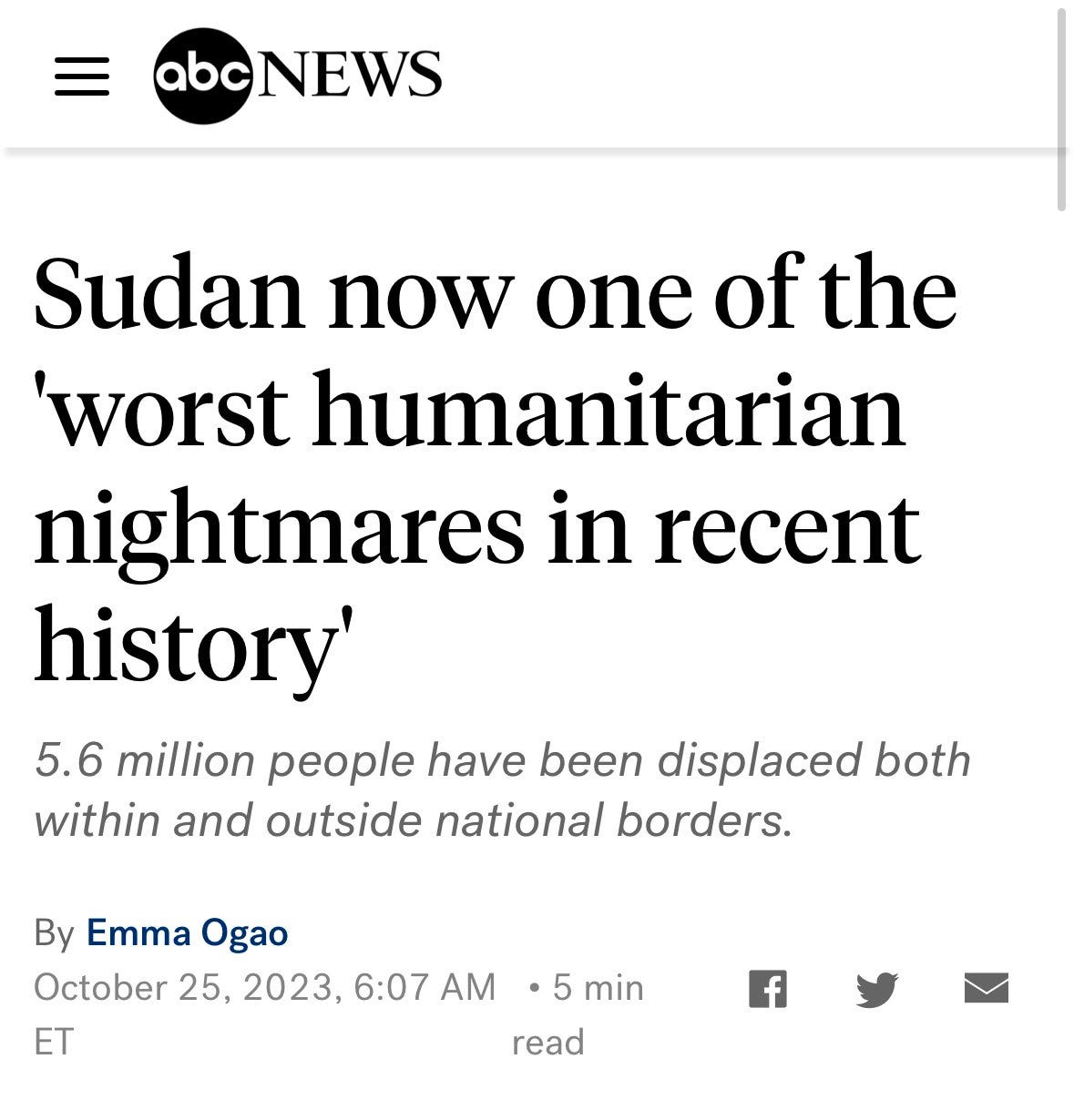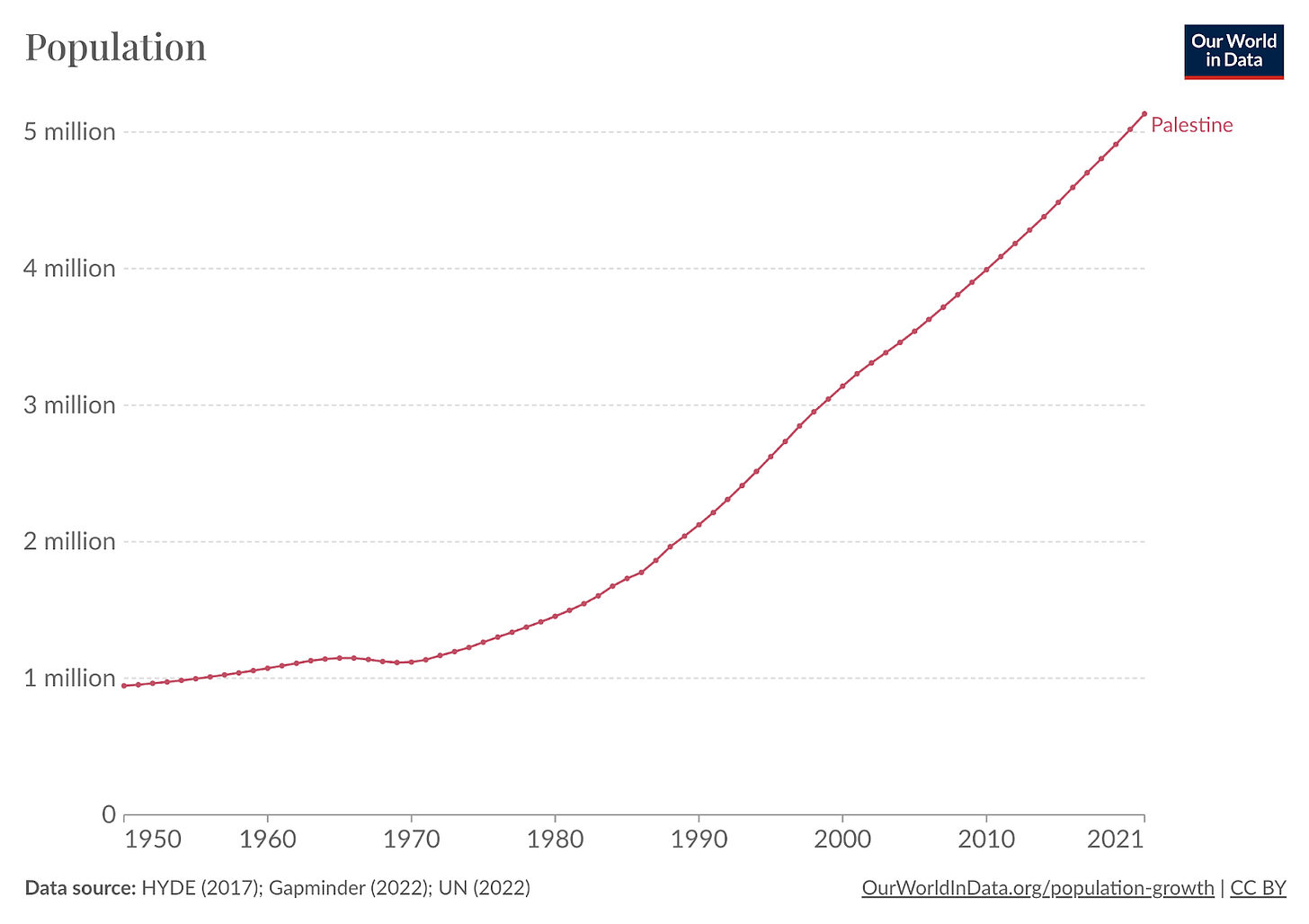What Does the Free World Stand For?
I will take my 3rd week off of the year next week, so no article then. My 4th and final week off will be at the end of the year.
Why does the Israeli-Palestinian conflict cause so much international rage compared to other conflicts?
Why is it splitting the West, with some Westerners justifying Hamas’s terrorism while others stand unconditionally with Israel?
Why is Muslim immigration so divisive in Europe? Russia’s invasion of Ukraine?
Why has internal debate in the last few years in Western countries centered so much on sex, gender, trans rights, freedom of speech, or inequality?
The key to answering these questions goes through a more fundamental question: What does the Free World stand for, and why does it clash with others and itself?
International Moral Conflicts
Westerners frequently criticize Muslims for double standards: While war in Sudan displaces millions of Muslims, with a rampage of rape and death, Muslims criticize Israel for Palestinian deaths before they happen.1
They remain shush while China ethnically cleanses the Muslim Uighurs, while they decry Palestinian ethnic cleansing even though the Palestinian population has quintupled in the last 70 years.
This, however, is perfectly normal. Because people don’t care that much about foreigners’ lives, but care a lot about values.
There is no debate about values in the civil wars in Sudan or Syria. Hundreds of thousands die killing each other. 🤷♂️ The plight of the Kurds is one of self-determination. That will matter to regions who want it—say, Scotland, Catalonia, or Tibet—but it is of little interest for most. Muslims might decry the ethnic cleansing of Uighurs, but they know there is no way they can influence it or Chinese values in general. They think this issue will be limited to Uighurs and won’t impact other Muslims—for now. So 🤷♂️
When Russia invades Ukraine, though, it’s not just about a piece of land and a bunch of people. It’s about the type of world we live in: Is it one where might is right? An imperialist world, where national interests overpower international rights? If we let Russia win, what stops it from invading another country? What stops Iran from invading Iraq, or bombing Israel? What stops China from taking over Taiwan, or using that as a stepping stone to conquer the South China Sea and every country around it? Will we enter a new world of protectionism and war, or maintain one of rights and trade?
The same clash of values is what fuels the interest in the Israeli-Palestinian conflict. It is a clash of civilizations—in this case, between the Free World and the Muslim World.
Samuel Huntington became world famous when he wrote his essay The Clash of Civilizations? 30 years ago. According to him, there are a bunch of civilizations in the world, and the most important conflicts are always between them, because they fight to have their values prevail. Naturally, the conflict between Arabs and Jews in Israel and Palestine is a potential example.
When I started exploring this idea, I quickly realized I was missing a key piece: What do we even stand for? What does the Free World value? Without understanding that deeply, how can we explore how our values conflict with those of other cultures?
So I started diving into this, and what I realized is that nearly all the internal conflict we have today in our Free World countries can be explained by a simple conflict of values.
What Are the Free World’s Values?
Maybe before I tackle this, we should define what’s the Free World. By that, I mean liberal democracies.

This maps reasonably well with Freedom House’s map on global freedom:
I’m about to build up from first principles the entirety of morality in the Free World. No biggie. Of course, that means conditions apply.2 So here’s my take on the values of the Free World:
We want to maximize happiness.
This is our main goal.
We have strong ideas about how to achieve that goal.
The most important factor for happiness is life: the ability to live healthily. If you’re dead or sick, you can’t enjoy anything else, so you can’t be happy.3 Life is the most fundamental value. It’s a prerequisite for everything else.
After life, there is a set of values that are also important for living well. One is freedom. Why? Because happiness is different for different people. Some people like some things, others like other things. There are patterns, but nothing universal. So we should let people do what they want, as long as they don’t impinge on the freedoms of others.
Freedom is also important because every person has unique information about what’s happening in their part of the world and what the most pressing problems are for them and their community. Letting them act accordingly will benefit everybody, because more problems get solved, faster. This, in turn, means more prosperity.
Prosperity is important, because a world that gets better all the time, that increases comfort and services and products, is a world that is hopeful for everybody, one where people want to build. A world without prosperity is a world where the pie is fixed, and people just want to fight for it or steal stuff from each other.
More prosperity also contributes to more freedom: Who is more free, the person who is condemned to work for hours and hours and earns a pittance? Or the one who, with little effort, can afford everything to pursue their wildest dreams?
Of course, prosperity and freedom sometimes lead to bad outcomes, especially inequality and abuse. We don’t want that. This is why we want fairness and equality.
These two values are entangled. By equality, I mean equality of opportunity. Humans instinctively dislike inequality. They feel sadness for those who suffer, or those who weren’t as lucky in life. Conversely, they don’t want freeloaders either, because then there’s no equality of effort. They simply want a fair world, where everybody has equal opportunities. So equality is equality of opportunities, with more benefits for those who add value.4
One useful concept to measure fairness and equality is under the veil of ignorance: Imagine before you were born. You had a veil of ignorance because you didn't know who you’d be born into, what kind of family, race, time, conditions, psychological profile... What rules would you hope for in such a society? A world where rules are fair is a world where, no matter where and how you were born, you will have a shot at a great life, you will have equality of opportunity.
And there you have it: I believe that the Free World wants to maximize happiness, and for that it puts life first, and then a set of other values very high in importance: freedom, fairness and equality, and prosperity. Everything else flows from this.
Did you pull this out of your a** hat?
Not quite. These values of the Free World are enshrined in a few documents, such as the US Declaration of Independence (emphasis mine):
We hold these truths to be self-evident, that all men are created equal, that they are endowed by their Creator with certain unalienable Rights, that among these are Life, Liberty and the pursuit of Happiness.5
The only changes I make there are changing the hierarchy, linking equality to fairness, and adding prosperity—which is something that the US Founding Fathers could have hardly foreseen, because they signed the letter just before the Industrial Revolution.
Another document that enshrines Free World values is the Universal Declaration of Human Rights:
Article 1: All human beings are born free and equal in dignity and rights. They are endowed with reason and conscience and should act towards one another in a spirit of brotherhood.
Article 2 covers non-discrimination (so, equality).
Article 3: Everyone has the right to life, liberty and security of person.
Note they call out security. To me, it flows naturally from life and freedom.
Article 4 prohibits slavery, which is against freedom so we’re covered.
Article 5 prohibits torture, which is against freedom and life.
Articles 6 through 11 say everybody is equal before the law and should have access to due process, which flow naturally from fairness and equality.
And so on. You can track nearly all the articles to one of the four core values that lead to happiness.
The Universal Declaration of Human Rights is inspired in the French Déclaration des Droits de l’Homme et du Citoyen written during the French Revolution, so you won’t be surprised to hear that the French motto of Liberté, Égalité, Fraternité also illustrates some of these values: It emphasizes freedom, equality (under the law), and fraternity, which is a term that conveys equality of opportunity.
Most of the other values of the Free World emanate from these core principles.
The Offspring of the Free World’s Core Values
Let’s consider all the ramifications of these core values, and how they explain the debates of free speech, wokism, trans rights, capitalism, communism, inequality, environmentalism, democracy, affirmative action, sex, abortions, kinks, and much more.
Freedom of Speech
Freedom of speech is crucial to the free world because it’s the most basic freedom. If you can’t say what you want, you are restricted in your thoughts.
Freedom of speech also means the ability to criticize others, which is the only way to improve, so it’s fundamental to prosperity.
Finally, freedom of speech is necessary for equality, because otherwise some people can say what they want, and others can’t. That’s not fair.
The Evil Brother of Freedom of Speech
Of course, sometimes freedom of speech impinges on other rights. For example, when they directly incite to violence against somebody else, or when they can cause a dangerous situation (eg. screaming “FIRE!” in a full theater), or they threaten life. Since life is a more fundamental right than freedom, freedom of speech is curtailed in these situations in most Free World countries.
It’s also limited when it challenges other values. For example, lying in marketing destroys prosperity, and lying under oath destroys fairness.
This gives us a very interesting insight:
Moral debates usually address conflicts between core values.
Here’s an example.
Wokism
The spirit of Cancel Culture is to curtail freedom of speech when it impinges on equality and fairness: If you say the n-word (=if you further discrimination, which is against equality), you will lose your prosperity. To avoid that, limit your freedom of speech.
Generalizing, the main cultural debate in the US in the last few years—wokism—has been about the tension between freedom and equality and fairness.
Should gays and lesbians be free to love each other publicly without fear to their life?
Let’s see, what fundamental rights does that impinge on for others? Nothing? Then they should be able to do so.
Yes but what about my freedom to not see that? I was free from seeing that in the past but now I’m not free anymore. I am forced to see them without my consent!
This type of argument leads to an additional nuance to freedom: As a rule of thumb, if what I do does not hurt you physically, then it’s fair game. Your emotional feelings are not as important as my physical freedom.
So yeah, gay people can physically do whatever they want—of course, as long as they don’t force others to do stuff they don’t want.
Which is why there was such a debate in the US about whether people could deny service to gay people—for example, can religious people deny making cakes for gays? Now this was interesting, because gay people would be forcing others to do things they don’t want to do, limiting their freedom. This was a conflict between freedom (the US first amendment) and equality and fairness (anti-discrimination laws). The US Supreme court avoided ruling on it decisively through a technicality, but sided on freedom.





